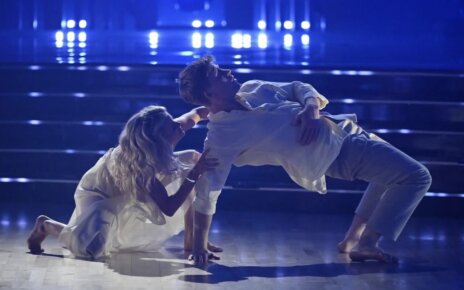For ten years, Act II: The Patents of Nobility (The Turn) sat in Jay Electronica’s hard drive, remaining an elusive project that teased fans since his groundbreaking single “Exhibit C” was released.
Throughout that decade, the reclusive Jay Electronica did very little, and anything that hinted at an album release made the hip hop community talk. Only a small number of artists could’ve made the initial impact Jay Electronica did. His rise from homeless backpacker to hip-hop’s lyrical savior was meteoric, which gave him quite a brand to live up to. When a picture of Act II’s tracklist leaked on the internet in 2012, people started to murmur that an album was soon to be released. Over the years, it never was released and the buzz dissipated; ultimately the album was largely forgotten.
In the years since, his personal life—rather than his art—has become the focal point of his persona. Sequestered in London with the heiress to the Rothschild fortune from England, he was no longer a rapper, but a tabloid figure. The exposure was a departure from his previous nomadic way of life. Then, after their break-up, his focus seemed to shift back to music.
This year he finally released, to positive reception, an album—A Written Testimony—which also acted as an exposé of his experiences from his hiatus. However, it was a different direction than what was expected from Jay Electronica when he first released music. The beats were synthy and distorted; still catchy, but mainstream-sounding from an artist who’s never shown an interest in attempting to sound like that. Considering his track record, it was hard to imagine that we would see another Jay Electronica release in such a short span.
That changed, though, when an unnamed entity bought it from a group of hackers for $9,000 and released it to filesharing sites around the internet. Jay Electronica initially attempted to block the release, but it seems like had become more comfortable with A Written Testimony, his previous effort; in turn, the public got to see Act II: The Patents of Nobility released on Tidal a few hours later.
Raw and unfinished, Act II tells the listener what Jay’s perspective was like back in 2010. He was a nervous up-and-comer, anxious to deliver an album that lived up to his initial hype. His introspective and deep wordplay is evident in every song of the album. His mystifying and enigmatic nature is “felt” as opposed to “heard” whenever he speaks. This is most likely a testament to his rootstock poetic approach to his songwriting. In his song “Better In Tune (with the Infinite),” he raps, “It’s frustratin’ when you just can’t express yourself/And it’s hard to trust enough to undress yourself/To stand exposed and naked in a world full of hatred/Where the sick thoughts of mankind control all the sacred.” A beautifully written phrase of a person dealing with self-doubt and artistic insecurity, the track captures the fears of Jay Electronica, his instability navigating through the music business, and the public exposure that comes with it all. The ennui is obvious in most of the album and we get a snapshot of his mentality throughout his emergence.
Musically, it’s slower, and there is a more familiar attitude to his songs than before the release of A Written Testimony. In Act II: The Patents of Nobility, Jay is extremely verbose and knows how to use mindful meditation to fit the song’s tempo and general feel of the beat.
In songs like “Real Magic” he’s less of a rapper and more of a wordsmith, and the music is downtempo: tailored to his cadence and flow. There’s also more room for just the music, which is different from his earlier album in 2020. In his song “Life On Mars,” which uses the same sample Kanye West used in his song “Bound 2,” the classy piano riff captures a feeling of love and admiration for Erykah Badu, his love interest before dating Kate Rothschild, and gives us an insightful look at his viewpoint before all the attention from the British tabloids.
All in all, it’s a solid effort. It was refreshing to hear the music of Jay Electronica from what seems like so long ago. It has everything that a vintage Jay Electronica album was expected to have: audio clips from movies, sound effects, and lyrics that make you remember what it means to hear somebody rap. It’s a must-learn lesson for any hip-hop fan. If there’s ever a body of work that can tell you about an artist’s delusion, self-examination, and self-doubt, it’s this one.
PHOTO COURTESY of Monmouth University




